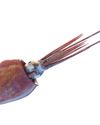
Food is essential to life, and all animals eat to gain the necessary energy for survival. Since the dawn of agriculture, people have experimented with different foods’ potential and learned how to turn cooking into an art. The art of flavouring requires not just taste intuition, but an understanding of the chemistry of different foods and their complementary pairings.
Today, chemists and chefs experiment with flavour combinations to create unique taste profiles for your tongue. The human body experiences flavours by combining the senses of smell, taste and touch. Your tongue is covered in sensory cells, which are packed into groups called taste buds. These protrusions on the surface of the tongue are stimulated by five main types of food flavour: sweet, salty, sour, bitter and umami. For a flavour to be processed, the food must be dissolved in water and come into contact with the taste buds. Food that has little or no water content relies on saliva that’s released into the mouth to instigate the taste sensation.
Between individuals, flavour preferences can vary. Your favourite food is likely to be different to your friends’, and a food that you can’t stand might be a staple in someone else’s diet. Our flavour preferences depend on our genes, experience and age. How your taste buds interpret flavour sensations can change as you get older, making some bitter foods more tolerable for adults than you remember them being when first exposed to them as a child.
Meanwhile, the foods that a pregnant person includes in their diet influence a child’s flavour preferences when they’re born. Despite our interpretations of flavour being personal, to some extent humans share the same core attraction to sweet flavours.
Denne historien er fra Issue 176-utgaven av How It Works UK.
Start din 7-dagers gratis prøveperiode på Magzter GOLD for å få tilgang til tusenvis av utvalgte premiumhistorier og 9000+ magasiner og aviser.
Allerede abonnent ? Logg på
Denne historien er fra Issue 176-utgaven av How It Works UK.
Start din 7-dagers gratis prøveperiode på Magzter GOLD for å få tilgang til tusenvis av utvalgte premiumhistorier og 9000+ magasiner og aviser.
Allerede abonnent? Logg på

INCREDIBLE SOLAR SYSTEM CRATERS
Why these spectacular craters carved out by past impact events are among the most widespread and distinctive geological features in the Solar System

HOW NORTH AMERICA'S GREAT LAKES FORMED
The world's largest freshwater system comprises five immense interconnected lakes, carved into Earth by glaciers

BUILDING THE WORLD'S DEEPEST CAR PARK
Australia's most famous landmark is often marvelled at from ground level, but its innovative spiral substructure is a hidden gem

FINDING THE COLOSSAL SQUID
This elusive creature spawned a legend of a deep-sea monster that endured for centuries

Octopuses burn more calories changing colour than you do on a 23 minute run
For octopuses, changing colour burns about as many calories as a human on a 23-minute run. Octopuses are masters of disguise, changing colour at the drop of a hat to startle predators and hide from prey.
The world's first silicon-anode battery could revolutionise electronic vehicles
A ceramic battery manufacturer has unveiled a solid-state battery concept that can be charged from 5 to 60 per cent capacity in just five minutes, giving future electric vehicles (EVS) a 186-mile range in the time it takes to order a coffee.

New technology gives AI the power to feel surfaces
Scientists have given artificial intelligence (AI) the capacity to 'feel' surfaces for the first time, opening up a new dimension for deploying the technology in the real world.

Visit Plane Earth 2125
How might our world have transformed under the strain of climate change 100 years from now?

The world's largest organism may have been growing for 80,000 years
Pando, an enormous quaking aspen that spans more than 40 hectares in Utah, is not only one of the largest known organisms on Earth, it's also one of the oldest.

Scientists detect the most powerful cosmic rays ever
Scientists have detected the most energetic cosmic rays ever discovered, and they're being produced by mysterious sources relatively close to Earth.